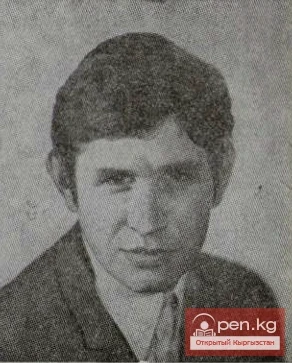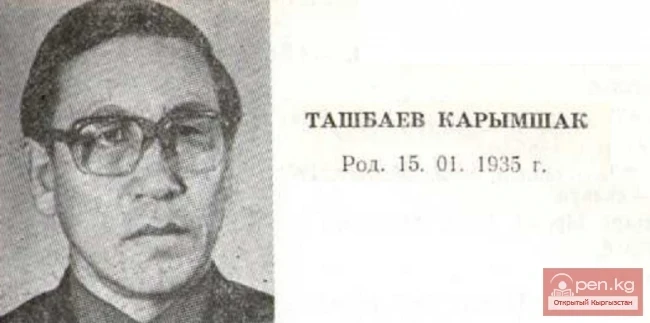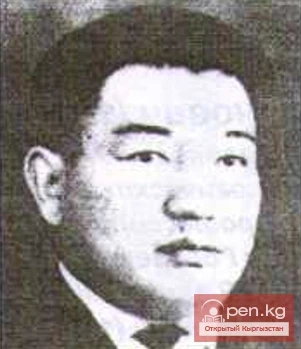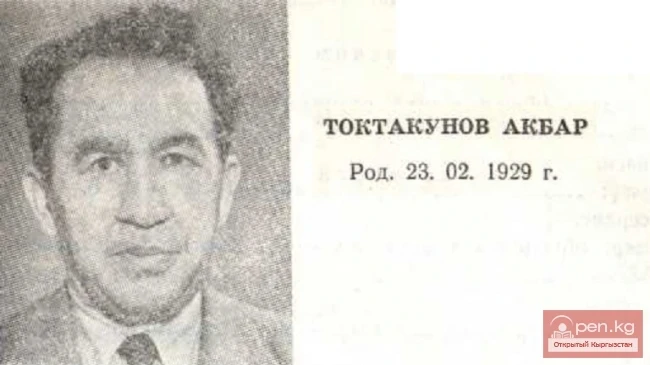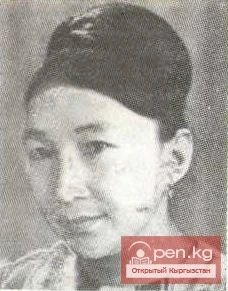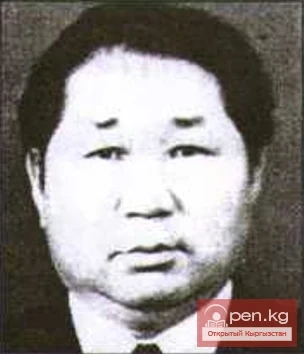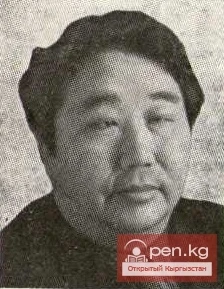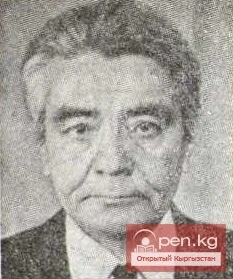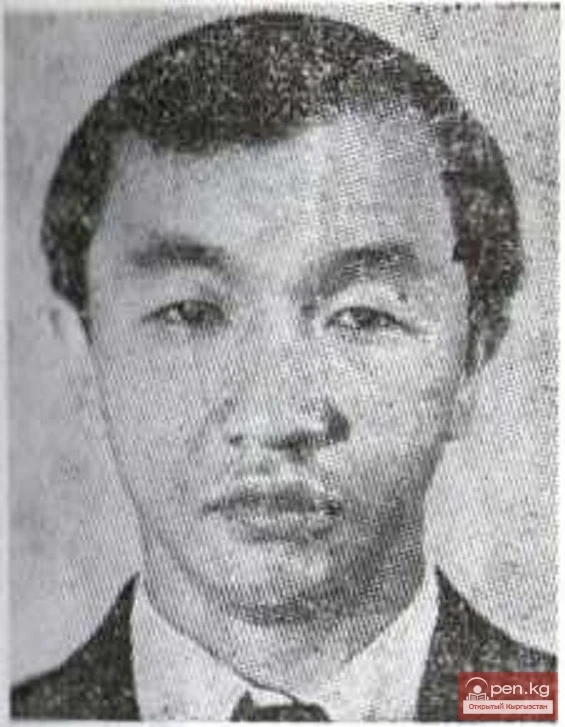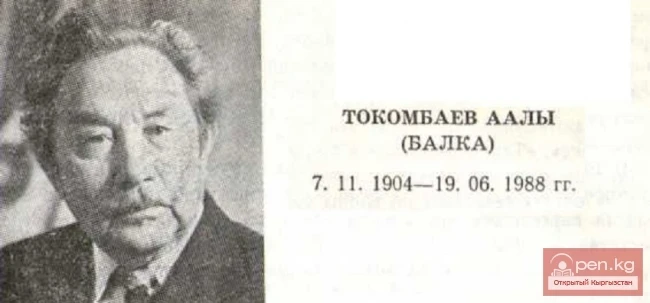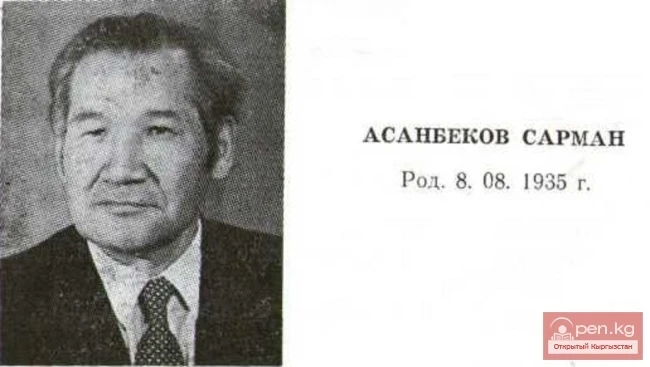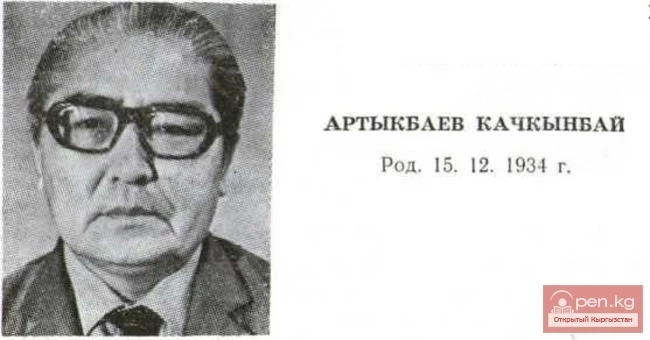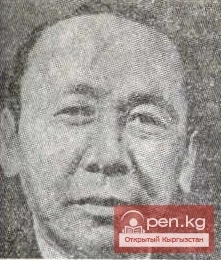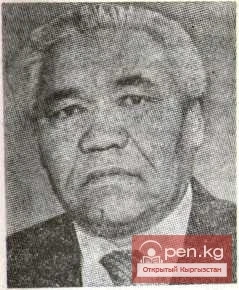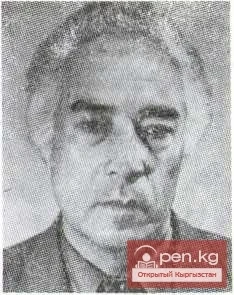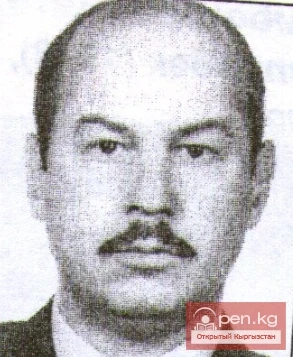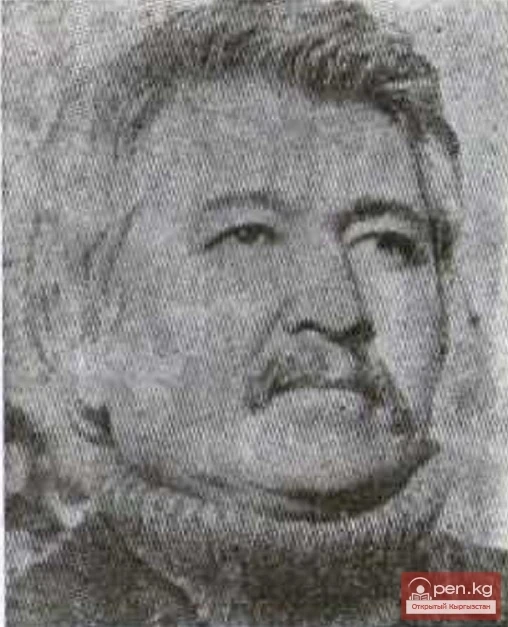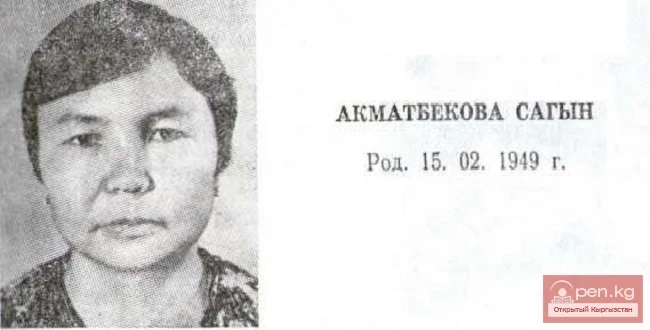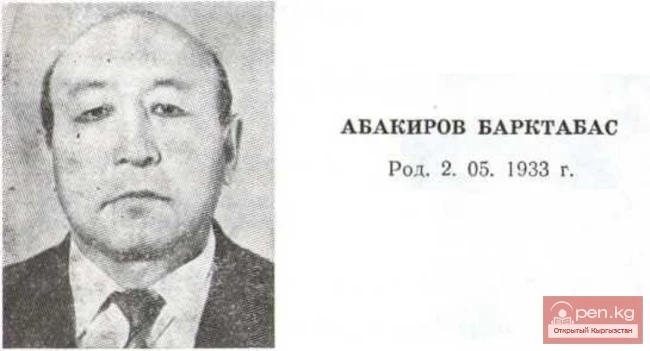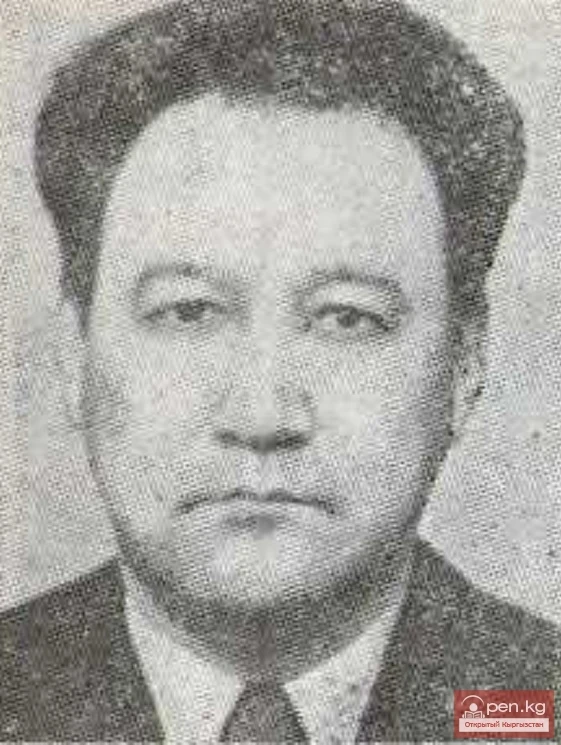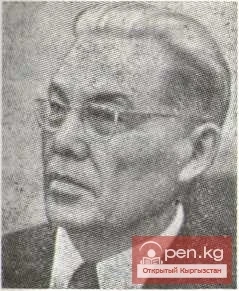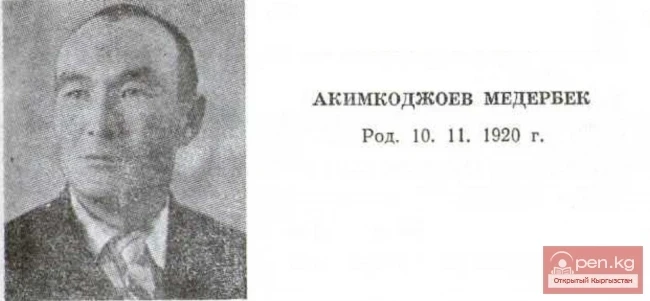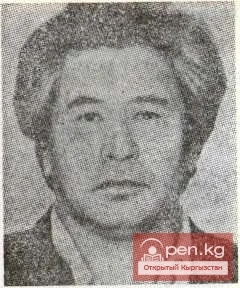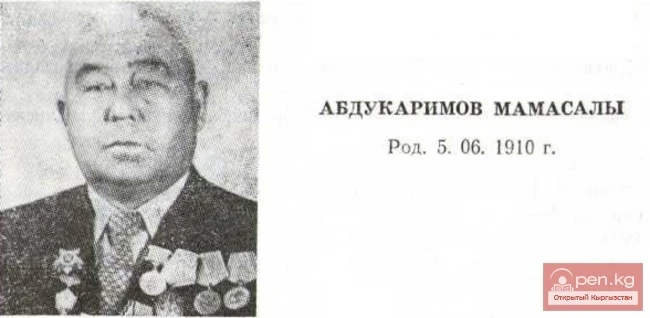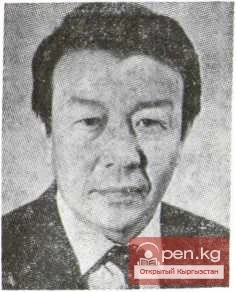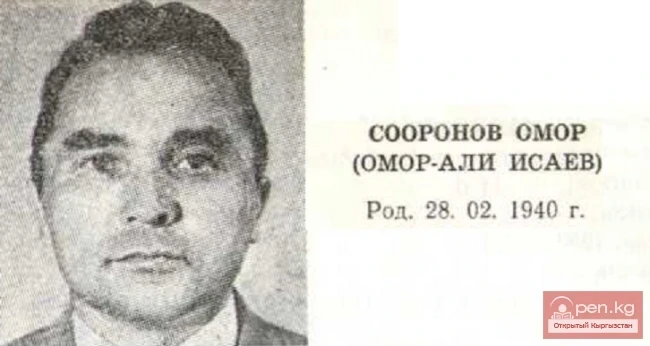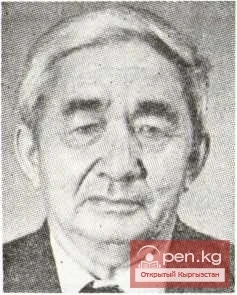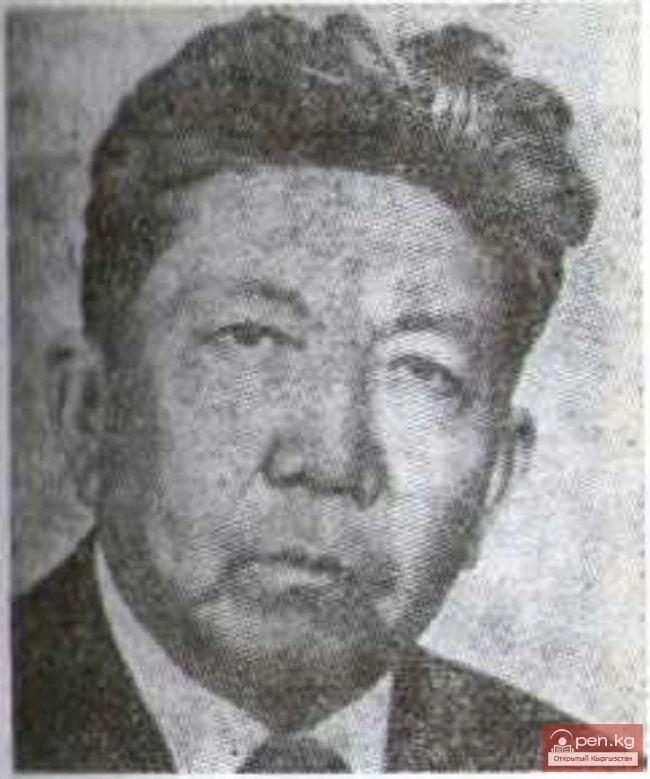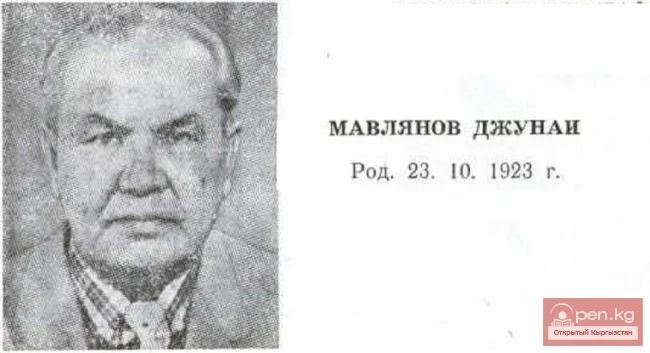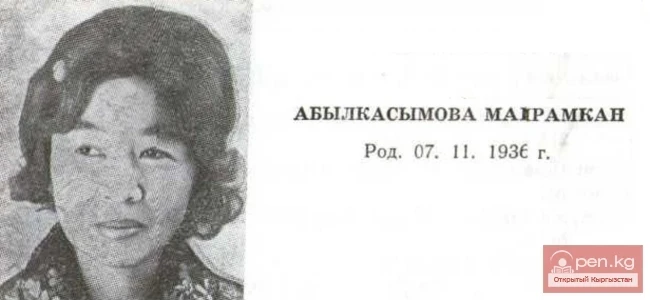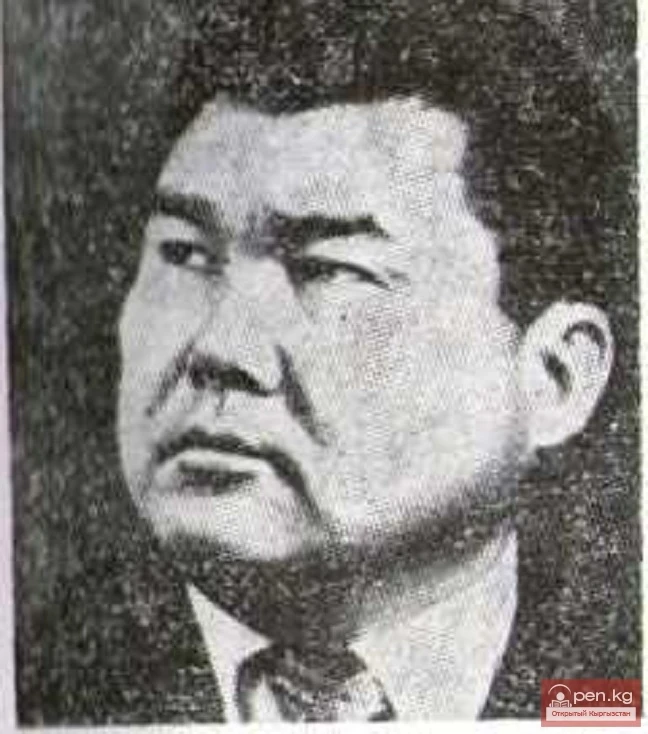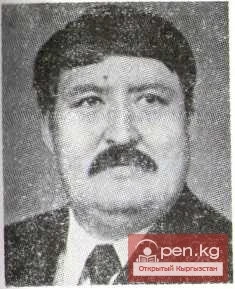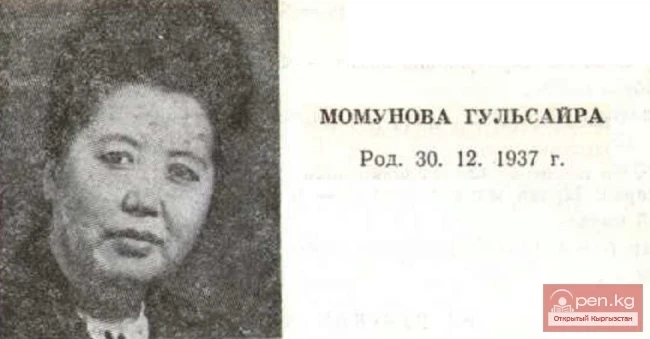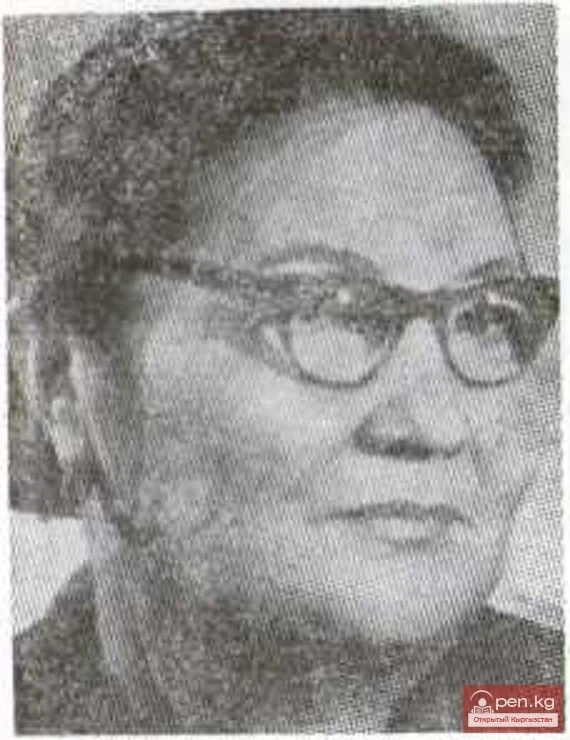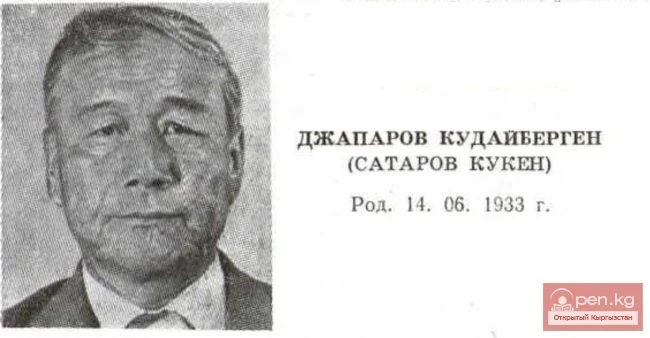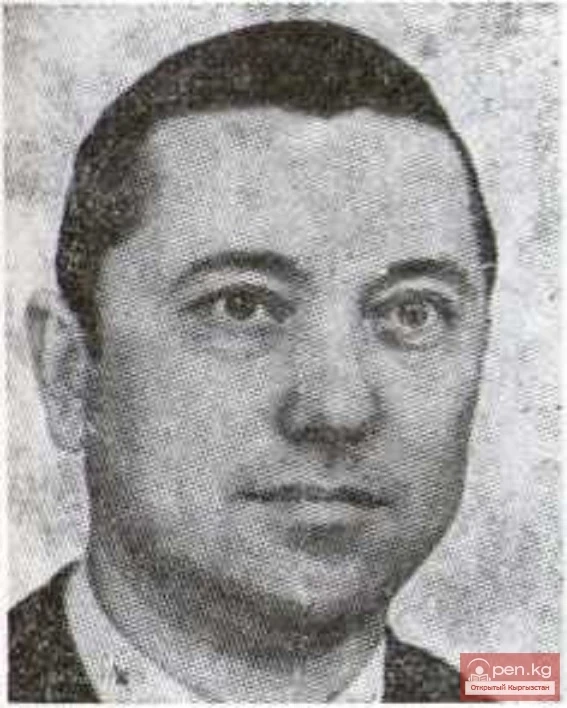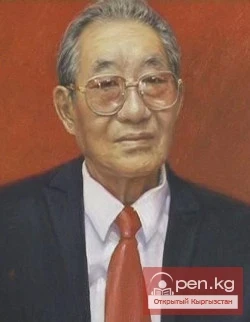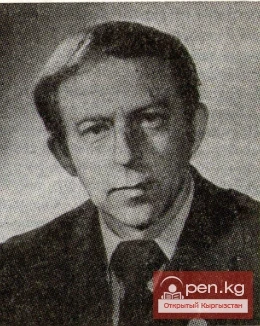
Vidugiris Algimantas - Stanislavas Stasevich
Film director. Honored Artist of the Kyrgyz SSR (1974).
Laureate of the Lenin Komsomol Prize of Kyrgyzstan (1977). Born on June 21, 1936, in the city of Kaunas, Lithuanian SSR, in the family of a civil servant. In 1955, he graduated from high school in the city of Uch-Turgen and enrolled in the hydrotechnical faculty of the Kaunas Polytechnic Institute. In 1957, he became a student of the cinematography faculty at VGIK and graduated in 1962.
His subsequent independent work is associated with the studio "Kyrgyzfilm".
In his first essay "Turning to the Sun" (1963, director-cameraman, together with I. Morgachev), A. Vidugiris demonstrated himself as a gifted, searching artist, choosing the spiritual essence of working people as the main theme of his work (the film was awarded a commendation diploma for a creatively interesting debut at the first review of documentary films in 1964 in Ashgabat). His talent as a lyricist and psychologist fully revealed itself in the films "PSP" (1965, diploma for best authorial work at the V review competition of cinematographers of Central Asia and Kazakhstan in 1966 in Ashgabat), "Overlap" (1966), "Watch" (1968, first degree diploma and "Tulpar" prize for best short film at the VIII review-competition of cinematographers of the republics of Central Asia and Kazakhstan in 1969 in Almaty; prize at the I All-Union Festival of Films about the Working Class in 1970 in Sverdlovsk).
The film "Castles in the Sand" (1968) gained All-Union and world fame. It collected a record number of awards: first degree diploma for best chronicle-documentary film at the VII review-competition of cinematographers of Central Asia and Kazakhstan in 1968 in Frunze, prize from the Central Committee of the Komsomol (1968), Grand Prize "Golden Dragon of Wawel" at the Krakow International Film Festival in 1969, jury prize of CIDALC "Silver Medal" (1969), special jury prize "Golden Statuette" at the 111 International Festival of Children's Films in Tehran (1968), award at the International Festival of Short Films in Tampere (1970).
The film "Naryn Diary" (1971), about the builders of the Toktogul Hydroelectric Station, is distinguished by great mastery, revealing the moral character of the modern working class and celebrating the high moral purity of the Soviet person. It was awarded the prize from the workers of the Gorky Automobile Plant at the II Festival of Films on Labor Themes and the jury prize for directorial search in Gorky in 1972. The film received the prize and the first award "For Best Feature Documentary" at the V All-Union Film Festival in Tbilisi in 1972. In 1974, "Naryn Diary" won the Grand Prix at the III International Short Film Festival in Grenoble (France).
The full-length film "In the Year of the Restless Sun" (1977) continued "Naryn Diary," telling about the courage and state wisdom of people well known to the director, from the construction site manager on the Naryn River to the climber-mounter. The film was rightfully awarded the "Silver Dove" at the XX MFK of Documentary and Short Films in Leipzig (1977).
A. Vidugiris's directorial activity is characterized by a constant creative search, mastering new genres of cinema. In the feature film parable "This is Not a Misfortune" (1970, diploma at the IX International Short Film Festival in Krakow in 1972), the moral purity of a person living in harmony with nature is celebrated. The color artistic television film "Glasses" (1973, jury diploma for a lyrical story about the formation of a child's character at the V All-Union Festival of Television Films in Tashkent in 1973; Honorary Certificate and "Scarlet Carnation" prize from the Central Council of the All-Union Pioneer Organization named after V.I. Lenin in 1975) touches on serious moral issues in raising children and their civic formation. In the parable film "Tale of a Man, a Wheel, and a Chinar" (1975), ideas of humanism and social progress are defended in a sharply journalistic, poster-like form.
Other films: "Factory Meetings" (cameraman, 1962), "Three Answers to the Mountains" (cameraman, 1963), "Forever Together" (cameraman, 1963), "In a Large Family" (cameraman, 1963), "This is My Land" (cameraman, 1963), "Roads of Kyrgyzstan" (screenwriter, director, 1967).
Awards — Certificate of the Supreme Soviet of the Kyrgyz SSR (1968).
Member of the Union of Cinematographers of the USSR since 1965.
WORKS ON THE DIRECTOR'S CREATIVITY
Toktogul Hydroelectric Station.—"Film Script. Almanac - 1976". Moscow, State Cinema of the USSR, 1976, pp. 331-350. What is a director? — "Komsomolets of Kyrgyzstan", 1965, March 7.
Years of Restless Work.— "Evening Frunze", 1978, March 11.
Not Only a Thirst for Life.— "Soviet Screen", 1978, No. 22, p. 13.
Alykulov B. The Film Awarded the First Prize (in Kyrgyz).— "Soviet Kyrgyzstan", 1972, March 12.
Ibrahimova M. Film Director, Cameraman A. Vidugiris (in Kyrgyz).— "Culture of Kyrgyzstan", 1977, October 20.
Kalidev A. Master Documentalist (in Kyrgyz).— "Soviet Kyrgyzstan", 1976, March 13.
Kushubekov K. City at the Bottom of the Lake (in Kyrgyz).— "Lenin's Youth", 1979, April 10.
Kushubekov K. Tale of a Man, a Wheel, and a Chinar (in Kyrgyz).— "Lenin's Youth", 1975, December 2.
Akmataliev K. Forever in Search.— "Soviet Culture", 1979, August 28.
Andreev A., Anarbaev D., Aksenov V., Rassokhina M., Sabirov M., Chyngyshov T., Shinko L. This is Us, This is About Us.— "Pravda", 1973, October 19.
Antonov V. In the Year of the Restless Sun.— "Satellite of the Moviegoer", 1978, No. 2, p. 20.
Arsenov P. What is the True Specificity of the Genre? — "Soviet Music", 1968, No. 11, pp. 85-86.
Artyukhov O. Accurately, Poetically.— "Truth of the East", 1969, September 13.
Artyukhov O. "PSP".— "Komsomolets of Kyrgyzstan", 1965, April 25.
Artyukhov O. The Main Thing is Sincerity.— "Komsomolets of Kyrgyzstan", 1969, November 25.
Artyukhov O. A. Vidugiris and His Films.— "Literary Kyrgyzstan", 1976, No. 2, pp. 74-80.
Artyukhov O. Chronicle of Brotherhood.— Press Information, No. 20, 1977, Moscow, "Soyuzinformkino", pp. 30-31.
Ashimov K. The Birth of Kyrgyz Cinema. Frunze, "Ilm", 1968, pp. 48-50.
Ashimov K. The Screen of Kyrgyzstan Tells. Moscow, Bureau of Propaganda of Soviet Cinematic Art, 1976, pp. 11, 16.
Belokon L. In the Language of Cinema About a Contemporary.— "Evening Frunze", 1975, August 29.
Borov A. A. Vidugiris, Film Director.— "Soviet Kyrgyzstan", 1972, June 18.
Borodkina A. Where Larks Spend the Night.— "Literary Kyrgyzstan", 1978, No. 4, pp. 94-98.
Bodunavichene Y. From the Chronicle of the Century (in Lithuanian).— "Vakarinės naujienos", 1976, No. 305, December.
Vaisfeld I. Our Multinational Cinema and the World Screen. Moscow, "Knowledge", 1975, pp. 102-106.
Varshavsky Y. Living Water of Art.— "Literary Gazette", 1972, May 21.
Varshavsky Y. Film. What Should It Be Like? — "Izvestia", 1973, February 22.
Galina O. "Tale" of Vidugiris,— "Evening Frunze", 1975, December 2.
Getman O. First There Was a Legend (in Ukrainian).— "Cinema News", 1975, No. 11, p. 8.
Gurevich L. A Guy from Lithuania.— "Komsomolets of Kyrgyzstan", 1964, December 30.
Gurevich L. ...Up to 16 Years Allowed.— "Soviet Screen", 1974, No. 13, p. 7.
Derbysheva L. Hello, Good Person! — "Soviet Cinema", 1964, June 2.
Jakypbekov A. Back to "Naryn Diary?"— "Literary Kyrgyzstan", 1974, No. 1, p. 96.
Evgeniev M. A Film About Hydrostroitel.— "Lenin's Path", 1965, December 29.
Zakrzhevskaya L. Mirrors on the Roads.— "Soviet Screen", 1968, No. 17, p. 14.
"Castles in the Sand".— "Art of Cinema", 1968, No. 10, pp. 63-65.
Zybina N. Laureate of the Golden Dragon.— "Ogonyok", 1968, No. 5, p. 19.
Kaleshchuk Yu. A Challenge to the Sun.— "Soviet Screen", 1977, No. 19, pp. 4-5.
Kinoiskusstvo Kyrgyz SSR (in Lithuanian).— "Intoi zeme", 1972, February 17.
Kotenko S. The Matter is in the Beginning,—"Young Guard", 1971, No. 11, pp. 290-292.
Kriger E. What is Good.— "Art of Cinema", 1972, No. 7, pp. 50-56.
Lyndina E. About My Land.— "Soviet Screen", 1970, No. 18, p. 4.
Lyndina E. Kostya Borisov Makes a Choice.— "Moscow Komsomolets", 1970, December 2.
Myakinnikov V. Attention — Filming is Underway! — "Lenin's Path", 1964, December 16.
Neporozhny P., Evgeniev T. Years of Restless Construction.— "Hydrotechnician", 1979, July 20.
Pozdnyakova L. The New Film by A. Vidugiris.— "Evening Frunze", 1974, August 12.
Prozhiko G. To Gift Good to Others.— "Art of Cinema", 1979, No. 8, pp. 93-98.
Roshal L. The Art of Asking Questions.— "Art of Cinema", 1965, No. 9, pp. 28-29.
Roshal L. Moment and Time.— "Youth", 1968, No. 9, pp. 87-93.
Roshal L. The World and the Game. Moscow, "Art", 1973, pp. 83-85.
Savitsky G. How to Live for the Glasses? — "Truth of the East", 1973, September 20.
FOREIGN FILM CRITICISM
The Youngest Film Studio in the Country (in Lithuanian).— "Kauno tesa", 1974, March 1.
Sarybaev E. In the Year of the Restless Sun.— "Komsomolets of Kyrgyzstan", 1977, May 1.
Tale of the Chinar.— "Screen", 1974, No. 10, p. 3.
Tapinas L. This Only Key (in Lithuanian).— "Shvituris", 1972, June 14.
Tess T. Events of the Soul.— "Art of Cinema", 1970, No. 9, pp. 8-10.
Festivals... Festivals (in Lithuanian).— "Ekrano naujienos", 1968, No. 30.
Firsova D. Obsession.— "Soviet Kyrgyzstan", 1979, September 14.
Fomina N. This is Us, This is About Us.— "Construction Newspaper", 1979, August 12.
Khelimskaya R. Continuation of the Theme.— "Soviet Kyrgyzstan", 1972, October 29.
Khelimskaya R. Meetings by the Mountains Looking at the Sun.— "Soviet Culture", 1973, December 25.
Khelimskaya R. The Birth of the Epic.— "Soviet Kyrgyzstan", 1979, September 20.
Shirokov V. Close-Up of a Contemporary.— "Komsomolskaya Pravda", 1972, March 12.
Yakovlev V. For the First Time in Cartagena.— "Soviet Screen", 1969, No. 12, p. 13.
Zobe G. Our XX Century on the Screen (in German).— "Berliner Zeitung", 1968, No. 167, June 19.
Iskerko A. Poet of the Screen (in Polish).— "Ekran", 1979, No. 15.
Knisz X. The Young and Beloved Festival (in German).— "Neues Deutschland", 1977, December 21.
Plazhevsky E. Poetry and Joy of Life.— "Soviet Culture", 1968, July 13.
Plazhevsky E. The Greatest Cinematic Impressions (in Polish).— "Horizons", 1968, September.
Sobeski V. The Success of Soviet Documentarians in Leipzig (in Polish).— "Country of Soviets", 1977.
A Film About Those Who Change the World (in German).— "National Zeitung", 1977, November 29.
